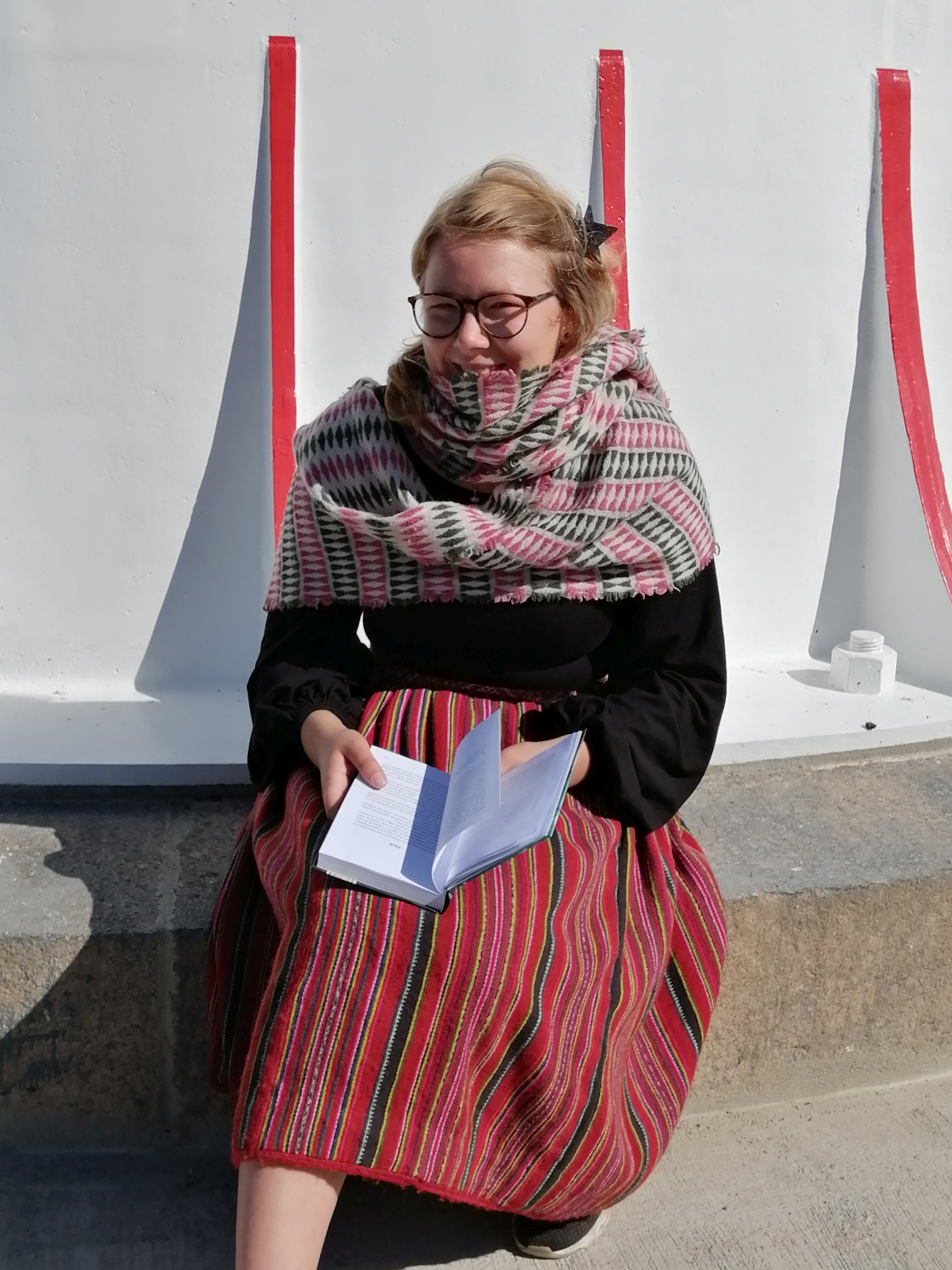“SAGEDASEMAD KONFLIKTID JA NENDE PÕHJUSED NOORTE KÄSITLUSES” (juhendaja Aurika Komsaare, MA).
LÜHIÜLEVAADE: Autor uuris oma lõputöös, kuidas noored konflikte teadvustavad – mida nad arvavad konfliktide olemusest, nende põhjustest. Ühtlasi seda, kas ja kuidas nad eristavad noorte ja täiskasvanute konflikte. Andmeid kogus autor töö kirjutamiseks poolstruktureeritud rühmaintervjuuga, kus osales kümme 7.–9. klasside õpilast ühest Narva üldhariduskoolist.
Uurimuses osalenud noorte arvates on neil kõige enam konflikte kodus, perekonnaliikmetega. Nende põhjustena nimetasid noored peamiselt koduseid talitusi. Näiteks olevat konfliktid lihtsad tekkima, kui tuba on koristamata või nõud pesemata jäänud; samuti siis, kui õpitulemused ei ole head; kolmanda grupina toodi välja arvuti tihedast kasutamisest tingitud konfliktid. Tihe arvutikasutus ei meeldivat vanematele.
Eakaaslastega tekivad intervjueeritute arvates konfliktid kõige sagedamini võistlussituatsioonides, sageli spordivõistlustel. Paljude eakaaslastega tekkinud konfliktide põhjusi ei oskagi noored nimetada.
Konfliktid õpetajatega on noorte kinnitusel põhjustatud tahtmatusest õppida, sealhulgas tegemata kodustest töödest, lisaks ka halbadest hinnetest. Ka mõne õpilase soovimatut käitumist tundide ajal on toodud õpilaste ja õpetajate vaheliste konfliktide põhjusena.
Huvitavaks tulemuseks on ka, et uuringus osalenud noored arvavad, nagu ei oleks nendevanuste konfliktid nii olulised kui täiskasvanute omad. Noorukieas on inimene nende väitel liiga emotsionaalne ning ei hinda situatsioone adekvaatselt – seetõttu tekivad konfliktid lihtsamini ja neil ei ole sageli eriti kaalukaid põhjusi. Täiskasvanute konfliktid tekivad nende arvates harvemini, kuid on tõsisemad, kuna täiskasvanute elukogemus aitavat neil paindlikumalt käituda ning konfliktsetes olukordades arukalt käitudes lahendusi leida. Kui konflikt aga siiski tekib, siis peab selleks kaalukas põhjus olema.
Tööst saab ka teada, millised on teismeliste arvates konfliktide võimalikud lahendamisviisid, nii-et head lugemist!
Aurika Komsaare, MA
kultuuridevahelise kommunikatsiooni lektor
TÜ Viljandi Kultuuriakadeemia
LÄBITUD ÕPPEKAVA: Huvijuht multikultuurses keskkonnas
SUMMARY: The subject of my thesis is „ Most common youth conflicts and their reasons according to youth“.
The purpose of this work is to investigate what kind of conflicts recognize youth and what they think about reasons of conflicts. In this work I’m trying to find answers to several questions: 1). What young people see the various reasons of conflict? 2). How do young people prefer to resolve the conflict?
This thesis following tasks was: 1). Collect and analyze literature according to the theme of work 2). Compile questions and conduct a group interview in Narva Kesklinna Gymnasium among young people 8-9 classes in ages 14-16. 3). Analyze the interviews and compare with the theoretical part.
This work consists of 3 parts: The first part consists of theoretical literature about conflicts, their solution and specialties of adolescent. The second part includes methodology of the research and gives an overview of database. And the third part describes the results of the group interviews according to the purpose of this work.
The experimental results showed that young people do not always understand the reasons of conflict and not always respond it adequately. They can offer reasonable solutions, but they use it in practice very rare.
According to youth opinions, the most common conflicts they see at home, with parents. And the most common reasons for this are household chores such as not washed dishes, not done cleaning; study such as bad grades; sitting at the computer. Also youth have conflcts with peers and the reasons of this conflicts are various competitions and sometimes young people can not find the reason of conflict. Very rare youth have disagreements with teachers. Mainly the reasons of conflict between teachers and pupils arises because of studying, not doing home tasks and bad behavior in the classroom. Youth understand emotionality of their age and think, that their conflicts are not so serious like adult people have. But they do not agree that the person’s versatility helps him better to solve conflicts and not to join them. Mostly youth think that big load of hobby makes a person more emotional, but he better try to control our negative emotions.
In conclusion I can say that youth have a lot of contradictions in their views, but the most common conflicts youth see between generations. Intergenerational conflicts are common at any time. Youth think that adults try to impose their opinions to them and do not understand that 38 another generation has other experience, views and their own life, which is not similar with older generations. Young people think, that with the experience and people in age have less conflicts and they are better able to solve them it.



